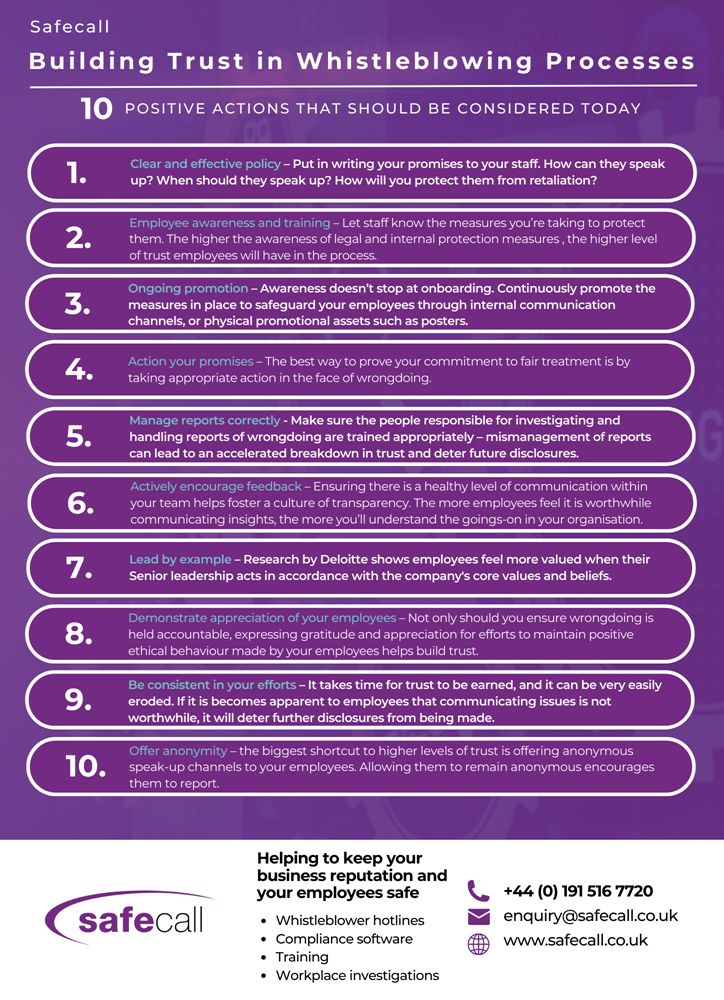
You can also download this checklist here
Download
Infographic Text as follows:
- Clear and effective policy – Put in writing your promises to your staff. How can they speak up? When should they speak up? How will you protect them from retaliation?
- Employee awareness and training – Let staff know the measures you're taking to protect them. If employees are aware of the legal and internal protection measures in place to protect them if they speak up against wrongdoing, the higher level of trust they will have in the process.
- Ongoing promotion – Awareness doesn't stop at onboarding. It is imperative that you continuously communicate the measures in place to safeguard your employees and your business. This may be through internal communication channels, or physical promotional assets such as posters.
- Action your promises – It's a fundamental start to have your good intentions in writing, but the only way to prove your commitment to fair treatment is by taking appropriate action in the face of wrongdoing. Showing your organisation's dedication to accountability is crucial in maintaining trust.
- Handle reports correctly - Make sure the people responsible for investigating and handling reports of wrongdoing are trained appropriately – mismanagement of reports can lead to an accelerated breakdown in trust and deter future disclosures.
- Actively encourage feedback – Beyond official communications, ensuring that there is a healthy level of communication within your team helps foster a culture of transparency. The more employees feel it is worthwhile communicating insights they have, whether positive or negative, the better you'll understanding the goings-on in your company.
- Lead by example – If your leadership or management team are seen to be living the positive values that are integral to your company, then your team are more likely to replicate those values. Research by Deloitte shows employees feel more valued when their Senior leadership acts in accordance with the company's core values and beliefs.
- Demonstrate appreciation of your team – Not only should you ensure wrongdoing is held accountable, expressing gratitude and appreciation for efforts made by your team to adhere to the company's values helps build trust. Behaviours in line with your organisation's ethos and expectations should be reinforced and rewarded!
- Be consistent in your efforts – It takes a long time for trust to be earned, and it is very easily eroded. If it is ever apparent that communicating issues is not worthwhile, this will deter further disclosures from being made. Make sure you are consistent in your communication and effort.
- Outsource where necessary – a shortcut to gaining high levels of trust is deferring to experts when necessary. When offering speak-up channels to your employees, for example, the most efficient way to gain buy-in is by allowing them to access independent, impartial and expertise-driven avenues. Independent providers such as Safecall, offer exactly this.
The content of this article is intended to provide a general guide to the subject matter. Specialist advice should be sought about your specific circumstances.

